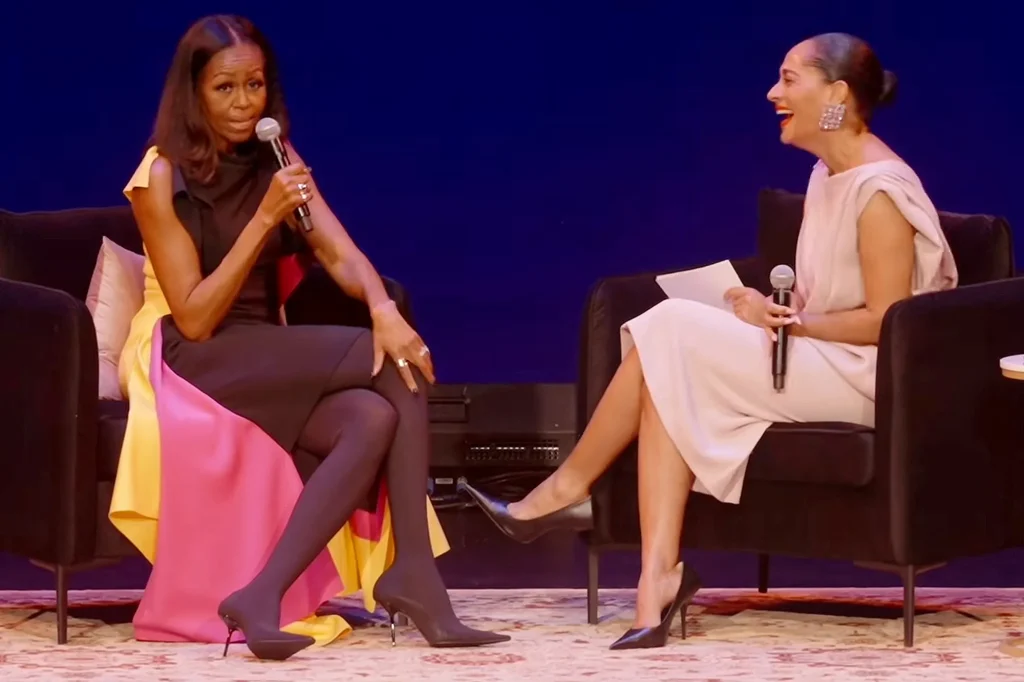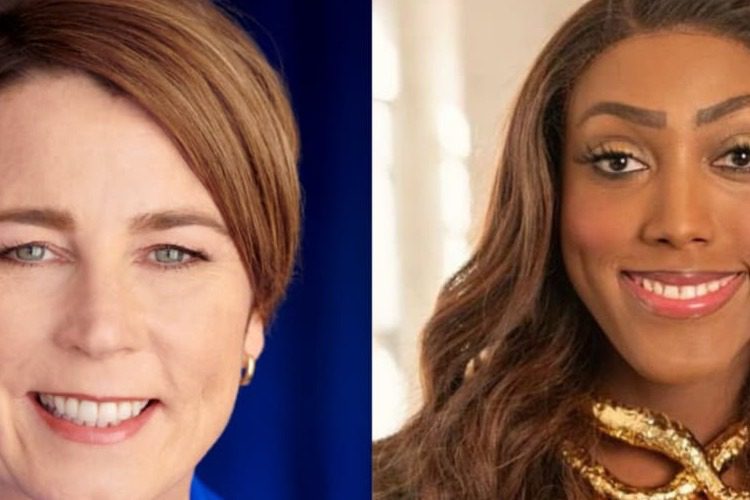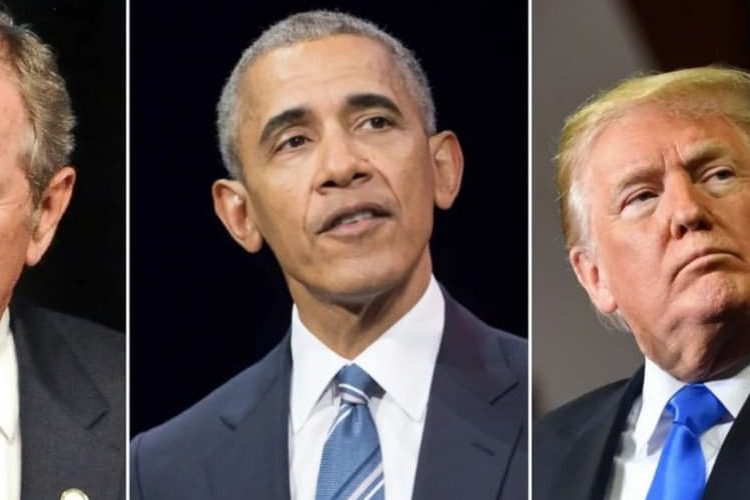Michelle Obama Says People Are “Lying” About Wanting Her to Run for President — and Warns “Don’t Waste My Time” as She Doubts America Is Ready for a Woman Leader
Michelle Obama has heard the question for more than a decade — sometimes whispered, sometimes shouted, sometimes framed as a fantasy, and sometimes delivered like a challenge: Will she ever run for president? It’s a question that has followed her since her first years in the White House, growing louder after her bestselling memoir, louder still after her global speaking tours, and reaching peak speculation as political divisions deepened across the United States. But while political insiders, poll watchers, and wishful supporters have built theories around her potential candidacy for years, Michelle Obama has never hesitated when the question reaches her directly. She has always said no. This time, she did not simply decline — she dismantled the idea altogether.
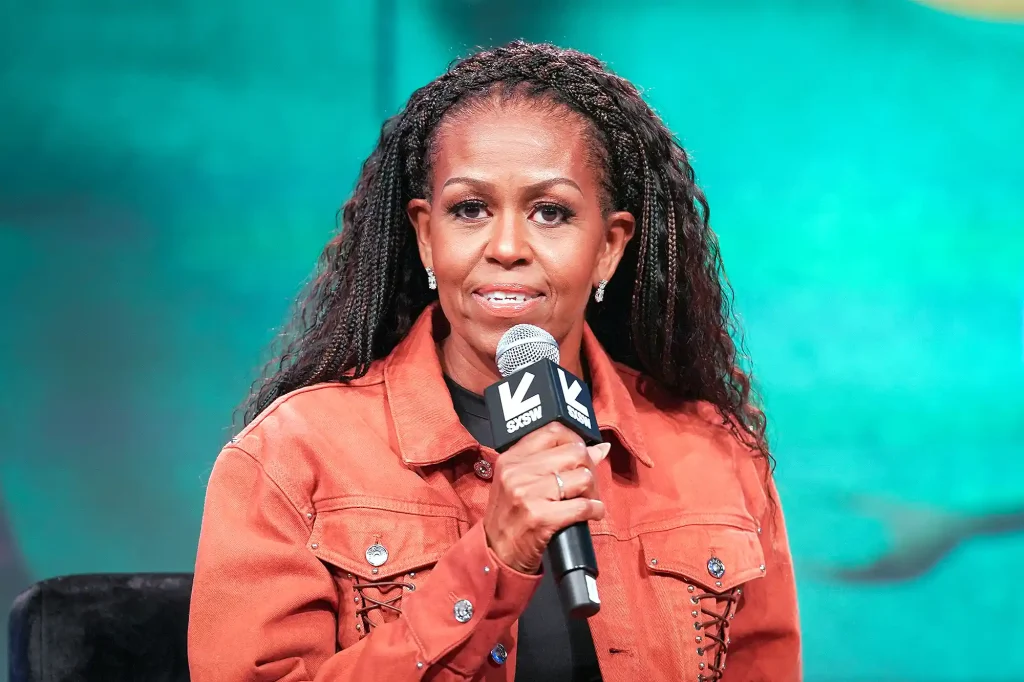
In her latest conversation on the topic, the former First Lady said she believes Americans claim to want her in office — but she does not believe they mean it. Calling the public “lying” about wanting her as president was not said with anger, but with the blunt candor that has become part of her public identity since leaving Washington. She explained that if Americans truly wanted leaders who looked like her, lived like her, and embodied the values they say they admire, the country’s voting patterns would reflect it. Her voice carried a tone of realism, not resentment. She was pointing to something larger than one hypothetical campaign. She was pointing to the gap between what Americans say they want and what they consistently choose.
Michelle Obama has long been viewed as the most admired woman in the country — a distinction repeatedly confirmed in national polls. She is respected across party lines, even among many who disagree with her husband’s policies. She is widely described as warm, intelligent, steady, and trustworthy, traits voters often say they want in a leader. Yet she does not believe that admiration translates into genuine willingness to support a woman like her through the brutal machinery of a presidential race. Her refusal to entertain the idea of running is rooted not in fear of losing, but in a deep understanding of how female candidates — and especially women of color — are treated on the national stage.
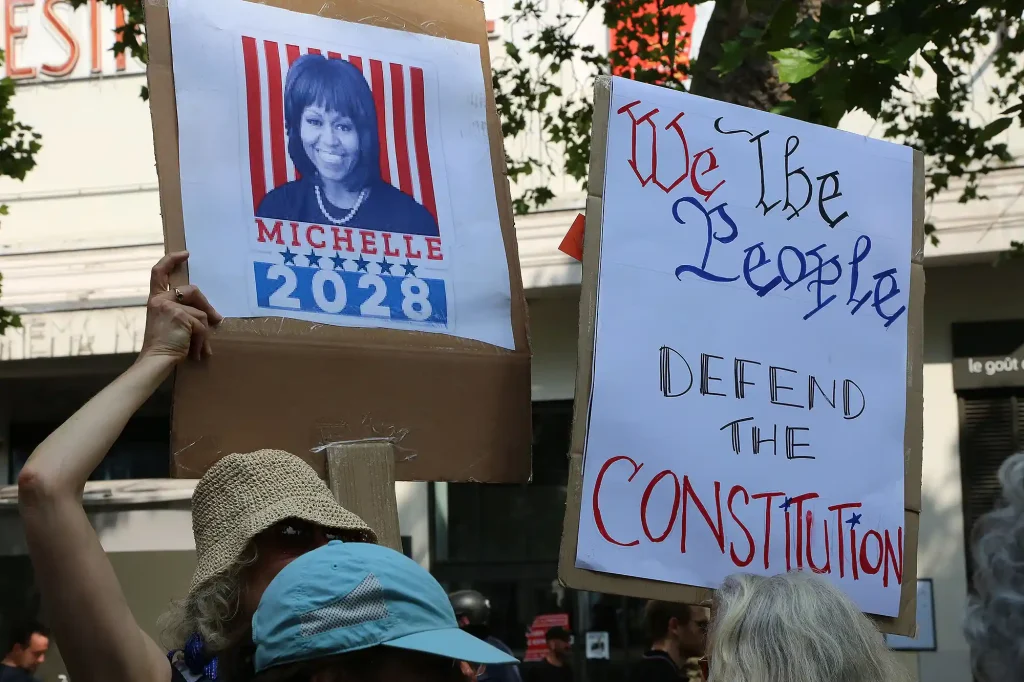
Part of her perspective comes from firsthand experience. Michelle Obama spent eight years observing American politics from the most intimate vantage point possible — the East Wing of the White House. She saw how her husband was celebrated and attacked. She saw how her own public image was weaponized, analyzed, and distorted. She remembers magazine covers that praised her and headlines that questioned her tone, her style, even her smile. She remembers being framed as “too strong,” “too direct,” or “too outspoken,” even when she was simply speaking honestly about food security or military families.
Her tone in recent interviews suggests a woman who has made peace with a choice—she will not run for president, and she will not pretend to entertain the idea for public approval. But there is a deeper meaning beneath her words. She does not only believe America is not ready for her. She questions whether America is ready for any woman to lead at the highest level. As she put it, if the nation truly valued the leadership qualities it claims to admire, it would not still be debating whether women are electable.
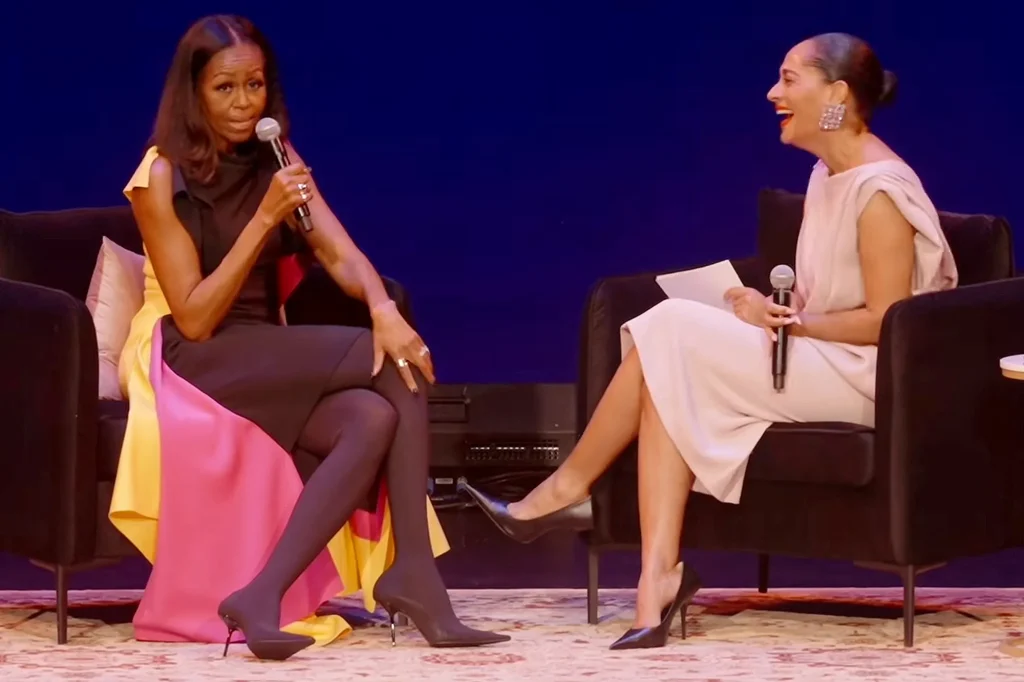
Those remarks echo a broader cultural conversation that has lingered quietly since 2016, when Hillary Clinton won the national popular vote but lost the Electoral College. The idea of a woman president is celebrated in speeches, in advertising, in symbolic moments. Yet the presidency remains exclusively male in practice. Michelle Obama rarely speaks about that history directly, but her recent comments show she is fully aware of the contradiction — that women are applauded in public narrative, but penalized when they seek visible power.
She also acknowledged something her supporters often ignore: she simply does not want the job. The presidency requires a level of sacrifice, scrutiny, and constant exposure she no longer wishes to give. She said it clearly — “Don’t waste my time.” Her time now belongs to her foundation work, her initiatives supporting girls’ education, her advocacy for voting participation, and her private life as a mother of two daughters who spent their formative years under national microscope-level pressure.
Her refusal is not a rejection of politics. Michelle Obama has remained deeply engaged in civic work. She helped launch When We All Vote, a nonpartisan effort to expand voting access. She continues to speak about civil discourse and democratic participation. She encourages Americans to stay involved in their communities. But she believes she can have meaningful influence without an Oval Office.
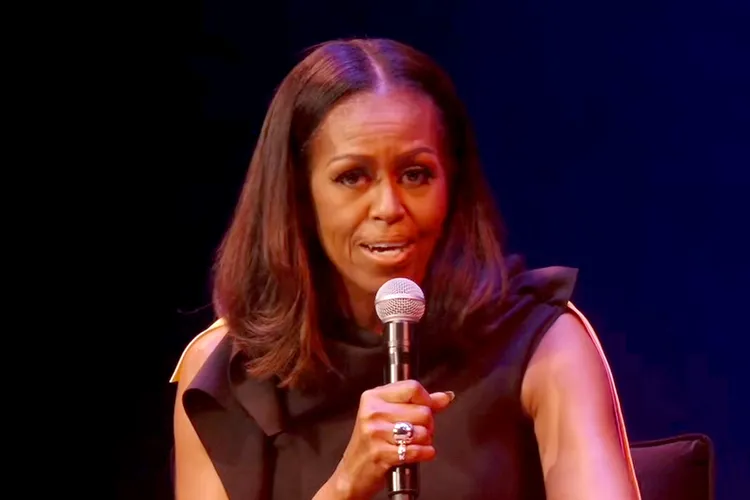
There is also a personal dimension to her decision. For many Americans, Michelle Obama symbolizes strength and grace under pressure. But for her, the years in the White House were both meaningful and profoundly demanding. She has said publicly that she often asked herself whether the country deserved the emotional labor she poured into representing it. Watching her daughters grow up while entire industries judged her hair, her tone, her clothes, and even her patriotism left a permanent mark. The question “Will you run for president?” is not just strategic. It is personal. It asks her to return to a life where her family’s privacy would disappear almost entirely.
That reality rarely appears in optimistic political discussions, where candidates are treated like chess pieces. For Michelle Obama, the potential cost is human, not theoretical. She has spoken about how, in the White House, her daughters could not open the door and walk down a street. She has spoken about how every public moment carried the weight of her race, her gender, and her visibility. To ask her to run for president is to ask her to willingly reenter that pressure — now magnified by social media and a more polarized nation than ever before.
Yet her refusal has not stopped speculation. Political strategists continue to list her name in hypothetical polls. Commentators imagine her as a sudden savior candidate if the political landscape fractures in 2028. Some call it wishful thinking. Others call it projection — the desire for someone who speaks like a leader without wanting power. Michelle Obama recognizes that dynamic and rejects it. Her message is consistent: if Americans want leaders like her, they must support the women already running, already governing, already campaigning in local, state, and national races.
That is where her remarks take on their sharpest point. She is not criticizing the public for praising her. She is challenging the country to translate admiration into action — not for her, but for the women who are willing to try. Calling Americans “lying” was not an insult. It was a statement about cultural comfort. Admiring the idea of a woman president is easy. Electing one — and defending her against inevitable attacks — requires consistency that America has not yet demonstrated.
Still, Michelle Obama remains one of the most influential voices in American public life. Her words move people. Her presence changes rooms. Her public refusal to run may do more to fuel future candidacies than if she had quietly stepped away. By saying “stop asking me,” she is forcing the nation to confront a deeper question: If not me, why not someone else?
In the end, the former First Lady’s message is not cynical. It is honest. She admires the presidency as an institution, respects those willing to pursue it, and values the democratic process. But she does not see herself inside that role. She no longer imagines herself being protected by a political machine. She imagines herself continuing to write, to teach, to mentor, to inspire through choice — not through obligation.
Millions may continue to wish she would reconsider. Her answer is unlikely to change.
She has given her country more than enough of her time.
